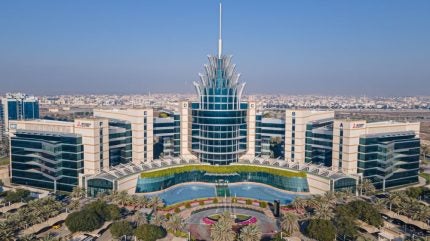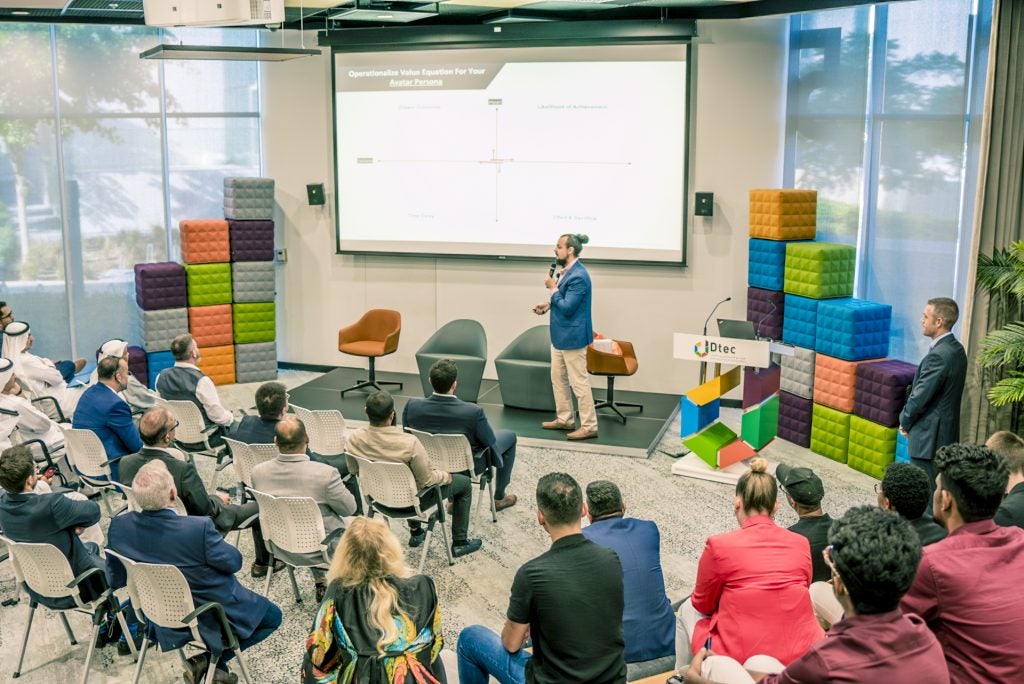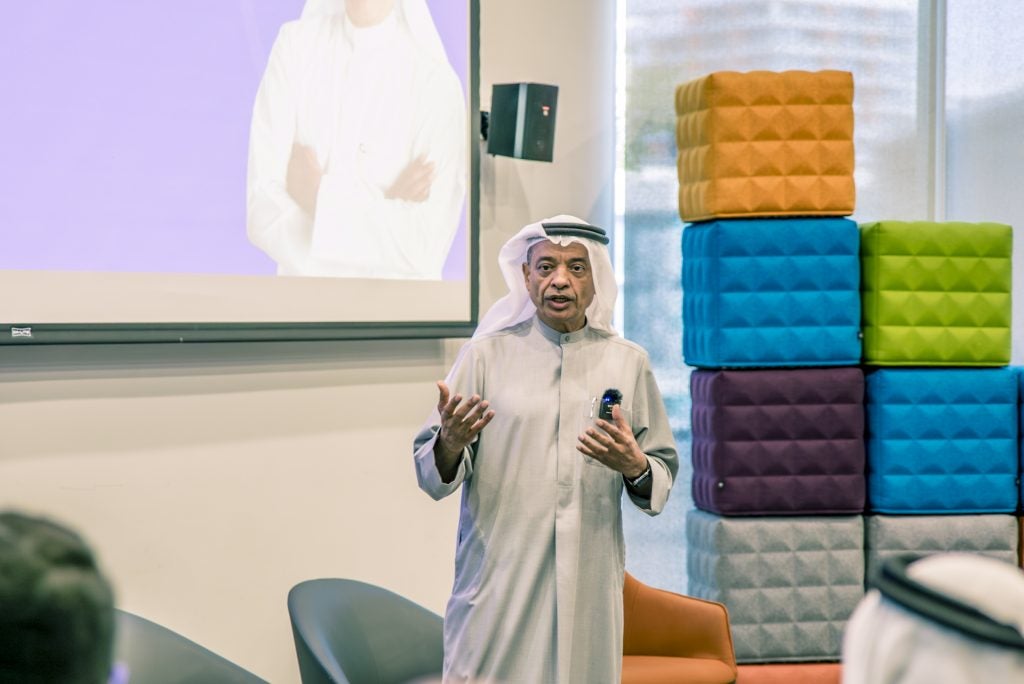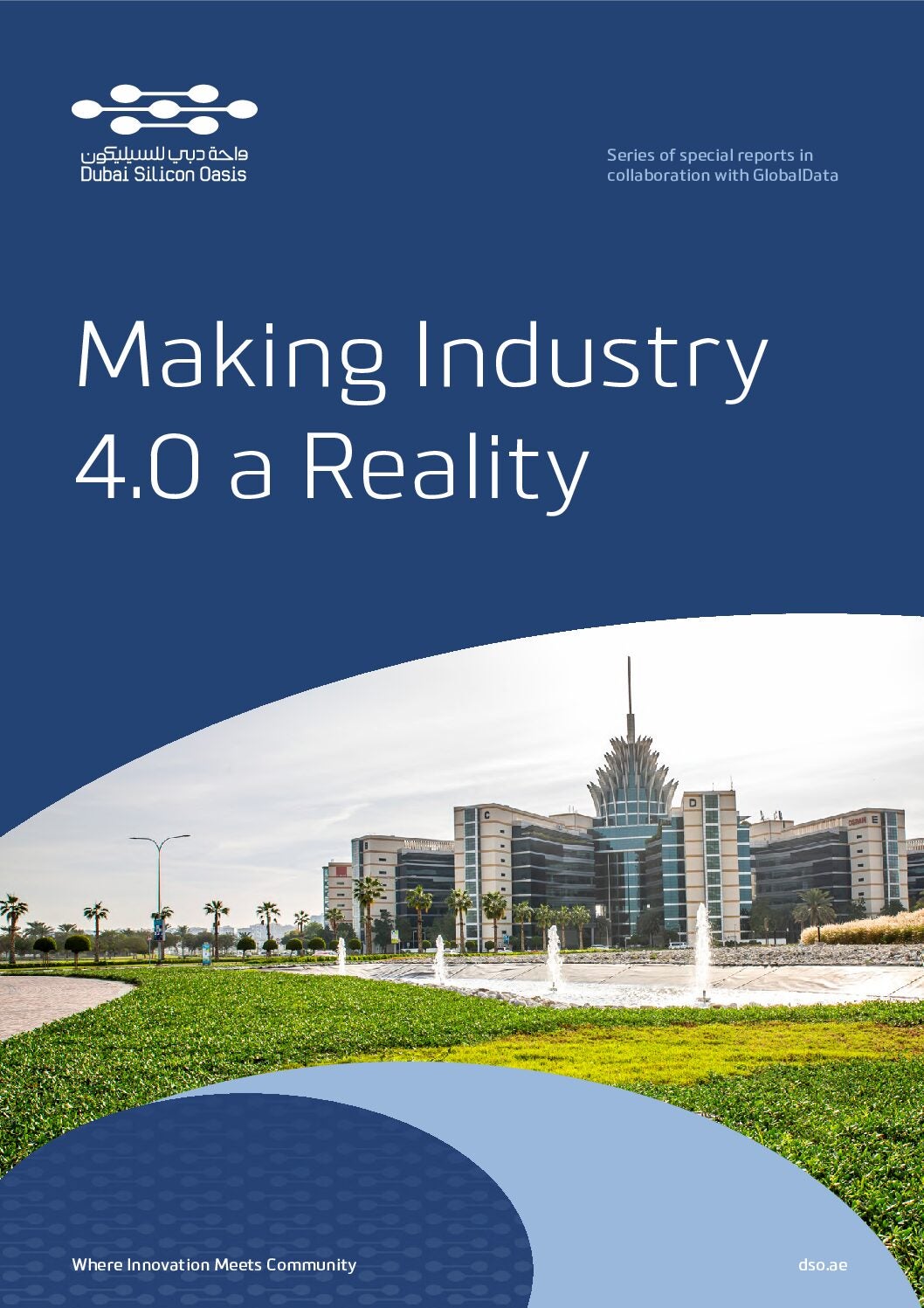
Artificial intelligence (AI) adoption and integration in business is likely to pick up in 2024, even as debate continues to swirl around ethical considerations and how regulatory and legal frameworks should respond. The immense development speed of large language models (LLMs) and Generative AI technology, which uses foundation models to create new content, is thought to be transformative, and technology leaders see 2024 as the year where practical applications go live.
“Last year was really about trying it and piloting the technology,” said Alessio Bagnaresi, director, AI and data analytics, Google Cloud EMEA at an AI event hosted by Dubai Silicon Oasis in January.

“This year many customers are going into production with use cases destined to drive efficiencies and productivity predominantly as a starting point.”
AI adoption picks up
Market intelligence firm GlobalData forecasts the Generative AI market to reach $33 billion by 2027, representing an 80% compound annual growth rate (CAGR) between 2022 and 27. GlobalData analysis estimates that the total AI market could grow to $908.7 billion in 2030, about nine times what it is worth at the end of 2023.
The technology is moving fast, but firms are only starting to grapple with how they can best integrate AI into core business operations to save time and money without risking reputational issues, lawsuits or making investments that don’t pay off.
“There’s an education gap and also an adoption gap, particularly in the Europe, Middle East and Africa region,” said Adam Streeter, co-founder of Perlon AI, a consultancy that works with companies to develop bespoke AI solutions.
But still, where excitement for AI has defined the past few years, now the talk has shifted to how the technology can practically be used. Firms are adopting their own versions of language models to improve customer as well as employee experiences.
“Large organisations are looking at how they can make all experiences [for employees] conversational, and they feel that’s where conversational AI and generative AI models are playing an active role in innovation for different organisations,” said Usman Wattoo, the vice president of sales at Kore.ai.
Within organisations, Bagnaresi said he is seeing a lot of human resources companions, or chatbots, being rolled out that help new employees navigate the onboarding process and understand company policies. Perlon AI’s Streeter said his firm is working with companies to perform repetitive tasks – whether it be sales emails or video voiceovers with voice cloning.
Safety, legal and ethical conversations
Even while firms look at how to integrate AI into their business operations, we are a long way from consensus on how to handle key challenges that the transformative technology surfaces.
“There will continue to be a lot of conversation around fundamental issues like safety, risk regulation, and public accountability for companies,” said Daniel Callaghan, the senior vice president of marketing and business growth at Dubai Silicon Oasis, a leading economic zone for knowledge and innovation in the United Arab Emirates.
Language models that are trained on vast amounts of online articles, texts and other materials have come under fire by the owners of such creative content. In the US, the New York Times has filed a lawsuit against OpenAI and Microsoft for copyright infringement.
“There is a growing concern about what happens when large language models and machine learning models become more mature and how organisations can control those elements of AI,” Wattoo said.
On the legal front, regulators worldwide are figuring out how to put guardrails on AI. In the European Union, the AI Act will attempt to ensure that AI systems within the bloc are safe, transparent, traceable, non-discriminatory, and environmentally friendly. In the UAE, a Council for Artificial Intelligence and Blockchain was formed to deliver AI National Strategy 2031 goals, which include building a strong foundation of talent, governance, research capabilities and infrastructure, development of a fertile AI ecosystem and building a reputation as the world’s premiere AI destination.
In the UAE, the government and private sector are working in close coordination to build a supportive ecosystem where AI innovators are empowered and able to develop cutting-edge solutions.

“AI presents both challenges and opportunities,” states Dr Juma Al Matrooshi, director general of Dubai Silicon Oasis. “Our approach is ambitious yet grounded in sustainability, emphasizing the necessity to be proactive. Surrounded by some of the top talent and intellectual capital here in Dubai Silicon Oasis, we are ready to contribute to this evolving journey.”
AI in Dubai Silicon Oasis
In Dubai Silicon Oasis, Dr Al Matrooshi and his team are cultivating an ecosystem that’s ready to support entrepreneurs, small and medium enterprises, and multinational corporations as they transition into a new era of AI-driven business operations.
“Central to our mission at Dubai Silicon Oasis is fostering knowledge and innovation across industries with the highest economic impact. A dedicated cluster of AI businesses is established to ensure collaboration and access to resources, including talent, infrastructure and research, to facilitate innovation in emerging tech,” Dr Al Matrooshi said.
“We’ve launched dedicated cluster events, accelerator programmes with some of the world’s leading institutions, and strategic initiatives across the board to ensure collective output to Dubai’s D33 Economic Agenda.”
Dubai’s Economic Agenda (D33) aims increase foreign trade, foreign direct investment and increase government expenditure with the ultimate goal of driving sustainable economic growth to double the city’s gross domestic product by 2033.
A 15-minute integrated city with over 60,000 residents and 30,000 operating businesses, Dubai Silicon Oasis is an economic zone where innovation is rapidly accelerated via access to homegrown and international talent, new technology testing and R&D facilities and close cooperation with the private sector, which has the ability to shape the governance of future technology.
Within Dubai Silicon Oasis, several clusters of emerging technology were formed, including one fully dedicated to artificial intelligence. Earlier last year, AI-powered pedestrian crossing was first introduced on the grounds of DSO, together with over a dozen of other projects and initiatives, aimed at delivering smarter solutions and more integrated experiences.
“The agility and speed of the ecosystem here is incredible,” Bagnaresi said. “The UAE … is the place where things happen, where the leadership of the country is fully committed to driving innovation in the country.”
To learn more about setting up your AI business in Dubai Silicon Oasis, download the free report here.



